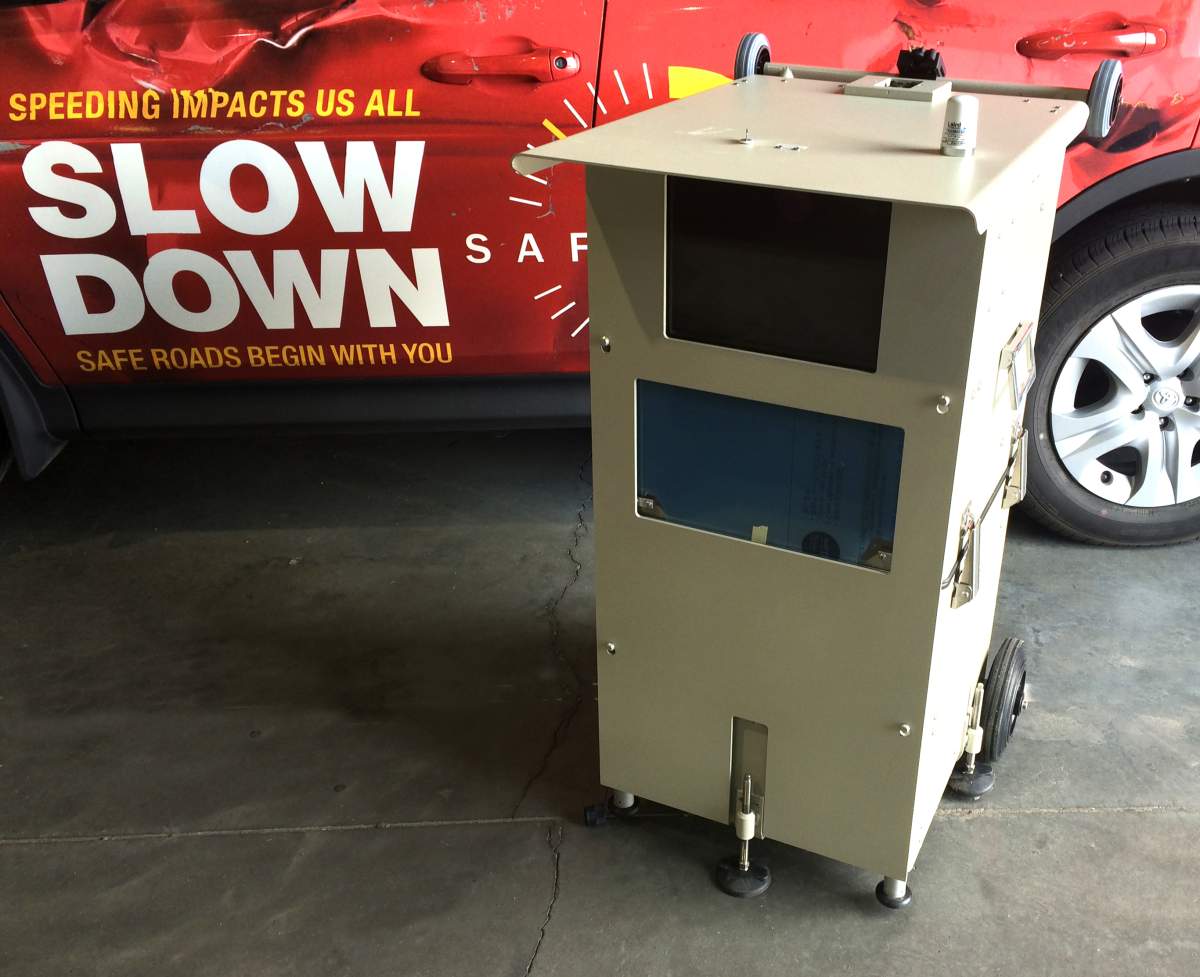Beware lead foot drivers — Edmonton is re-introducing disguised photo radar boxes as a tool to catch speeders.

The city said starting this week, the free-standing photo radar equipment boxes, which look similar to utility boxes, will be used in locations where it has been impossible to safely deploy enforcement vehicles.
When considering the idea last summer, the city said they would likely be used on busier roads such as 99 Street from Whyte Avenue to Saskatchewan Drive, where there’s a lot of density and pedestrians, and limited parking.
“This is regular photo enforcement equipment housed inside a metal case that can be set beside the road,” Executive director of the office of traffic safety Gerry Shimko said on Thursday.
READ MORE: ‘I think people have every right to be outraged’: Edmonton city councillor on photo radar costs

Get daily National news
A peace officer will be able to monitor the equipment and confirm speeding infractions just like they do with vehicle-mounted systems. The disguised photo radar boxes were last used in Edmonton in 2009.
The City of St. Albert has been using disguised and hidden radar for 15 years with good results, which prompted Edmonton to take notice.
READ MORE: City of Edmonton considers disguised photo radar
The city said it received 651 speeding complaints last year, and in the first six month of this year heard from 397 people wanting more enforcement and other traffic calming measures.
When the city said it was looking into the idea of re-introducing the photo radar boxes last summer, Global News conducted an online poll asking, “Would you support the use of disguised photo radar in Edmonton?” Only 14.8 per cent voted”yes, anything to slow down speeders.” Of the 2,430 people who responded, over 83 per cent – or 2,021 people, chose “no, it’s a cash grab.”
Watch Below (August 10, 2015): The City of Edmonton could be adding to the ways it catches speeders with photo radar. St. Albert uses disguised and hidden radar they say has proven effective and Edmonton is taking notice. Jessica Kent explains.



Comments